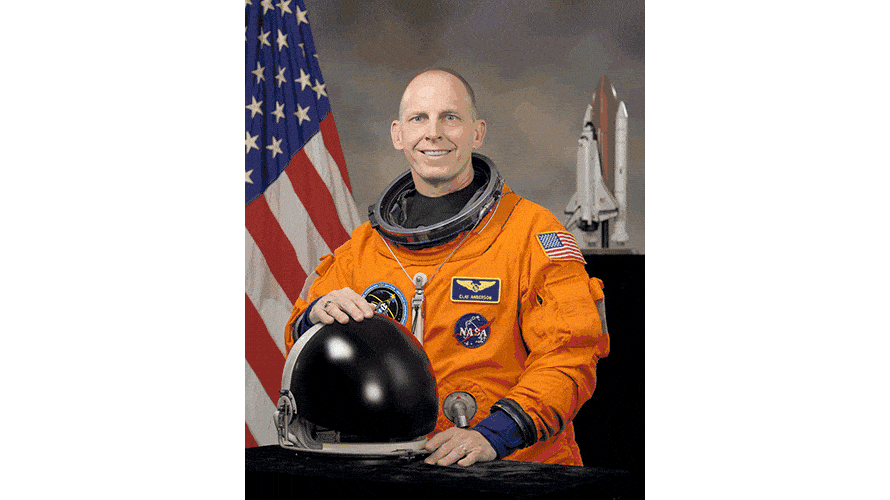By Robin Scott
Clayton Anderson, author of The Ordinary Spaceman and other books, Expedition-15 Crew member Expedition-15 Crew member (spent 152 days on the International Space Station [ISS]), first and only astronaut from Nebraska, and Chief Executive Officer of the Strategic Air Command and Aerospace Museum, candidly presented his Astronaut experiences and outlooks during an NSS Iowa Chapter question-and-answer meeting. Anderson recognized how his college career guidance counselor communicated to find summer-internship possibilities for him at Johnson Space Center (JSC)/ NASA where he was in the forty out of four-hundred and eighty applicants picked to be an intern. This JSC-NASA internship gave perspectives to whet Anderson’s appetite for the space environment.
As far as becoming an astronaut, Anderson attributed it to well-roundedness, perseverance (i.e., interviewed after 15 applications), and attributes that set you apart from the average applicant (e.g., Anderson was a men’s college basketball official). He gained certifications, updated his application each year, and included a bulleted-two-page summary of his accomplishments inclusive of meaningful community involvement on later applications.
Anderson gave his perspective of how he attained his dream as an astronaut. Through rigorous astronaut training, he gained understanding of how to deal with himself, who he is, what his limits were, and his teamwork abilities to complete the mission. Anderson’s work included wiring the ISS for ethernet capabilities, working on a plant growth system (which was compared to students’ work on Earth), and heart/circulatory experiments.
On two trips to space, he noticed his most obvious physical changes to be a consistent 12-pound weight loss and an increase in height. While on the space station, he said his communication with his family, access to email along with TV programs and movies was helpful to make his stay more comfortable. Psychologically, he and other astronauts are helped by a biomedical psych health support group.
Anderson demonstrates his interest in educating the public on space and aerospace by running the Spaceflight Operations Workshop at Iowa State University for two weeks in August, his work with the Strategic Air Command and Aerospace Museum, and through his enjoyment in writing. Anderson developed a discipline to quickly and accurately write technical documents at NASA and wrote what has been considered the bible of rendezvous and proximity operations for the ISS. As an author, Anderson has published four books: Letters from Space, It’s a Question of Space: An Ordinary Astronaut’s Answers to Sometimes Extraordinary Questions, A is for Astronaut: Blasting Through the Alphabet, and The Ordinary Spaceman: From Boyhood Dreams to Astronaut.



















